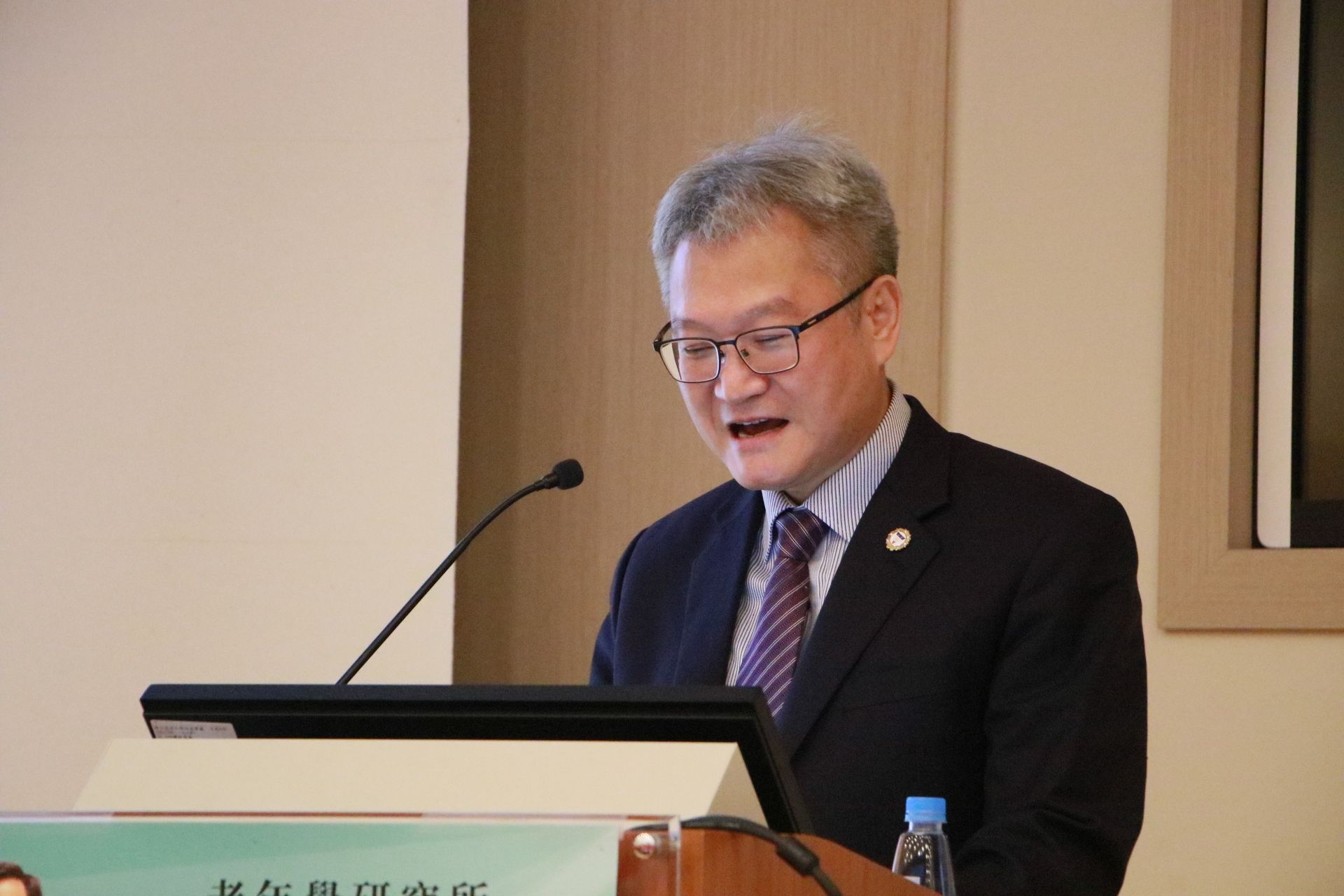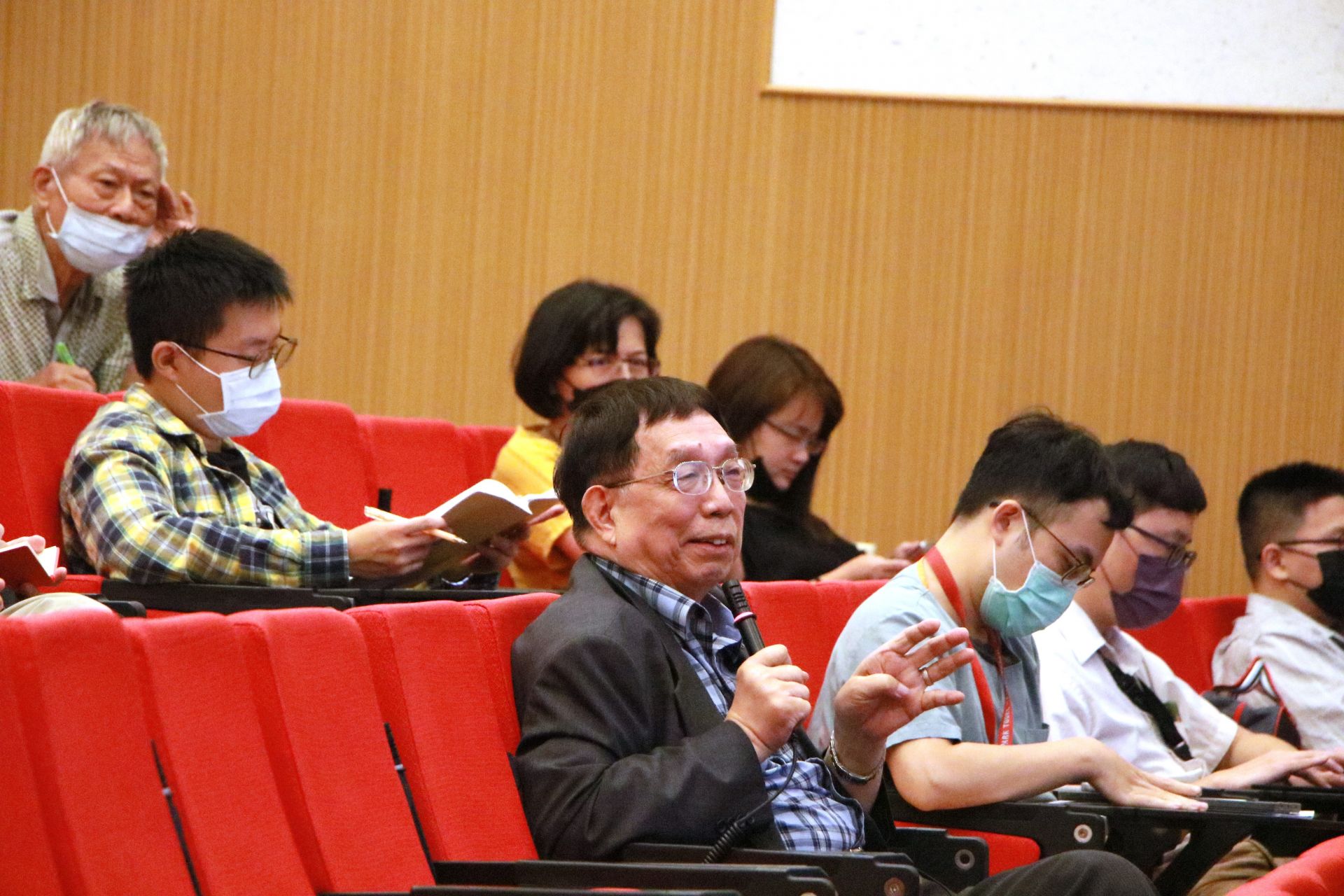SDG3
NCKU College of Medicine Anniversary Celebration: President Chien-Ning Huang, MD of CSMU, discusses diabetes and dementia
Taiwan has the highest prevalence of diabetes in Asia, and with the rapid aging of its population, the prevalence of dementia increases with age. Does diabetes lead to dementia? Dr. Chien-Ning Huang , President of Chung Shan Medical University (CSMU), pointed out that the probability of dementia in diabetic patients is 2 to 4 times higher than in normal individuals. Poorly controlled diabetes, low blood pressure, and impaired kidney function all increase the risk of dementia.
Dr. Huang, currently the Chairman of the Taiwan Diabetes Association, was invited by the Institute of Gerontology at NCKU College of Medicine to give a lecture on "Does Diabetes Lead to Dementia?" on the 20th. He discussed topics such as the epidemiology of diabetes and dementia, risk factors for diabetes and dementia, diabetes prevention, cognitive function and brain structure in diabetic patients, and diabetes treatment cognition.
Using data from CSMU, Dr. Huang pointed out that the proportion of dementia patients with diabetes is not low. From October 2019 to April 2022, out of 2,031 registered dementia patients, 732 had diabetes, accounting for 36.3% of the total. Those aged below 50 accounted for 1%, 51-64 years old accounted for 8%, and those aged 65 and above accounted for 91%.
Dr. Huang stated that as the duration of diabetes increases, the risk of cognitive decline also increases. In a study with a follow-up period of over 20 years, those with a duration of diabetes over 9 years showed a more significant decline in cognitive function. Late diagnosis of diabetes or being diagnosed at a younger age is also detrimental to future cognitive function.
While high blood sugar is detrimental to diabetes, low blood sugar is also not good. Dr. Huang pointed out that if one has visited the emergency department due to low blood sugar, the risk of dementia increases by 1.77 times after 7 years, and by 1.94 times with more than 3 emergency visits. He emphasized the importance of controlling blood pressure but cautioned against excessively low levels, especially in older adults.
In conclusion, Dr. Huang believes that diabetes increases the risk of dementia. Controlling diabetes well, maintaining good blood pressure and kidney function, avoiding depression, neuropathy, etc., can help reduce the risk of dementia.
This forum, part of the anniversary celebrations of the 40th anniversary of NCKU College of Medicine and the 16th anniversary of the Institute of Gerontology, was organized and opened by Professor Ming-Chyi Pai, Director of the Institute of Gerontology. Professor Pai emphasized the complex relationship between diabetes and dementia, and how blood sugar levels can affect cognitive function in older adults, which warrants long-term attention from clinical physicians and researchers.
Dr. Chien-Ning Huang , with a Ph.D. in Medical Research from CSMU, specializes in metabolism, endocrinology, and endocrine molecular biology. He is currently the President of CSMU and Chairman of the Taiwan Diabetes Association. He has been awarded the 2021 Taiwan Medical Paradigm Award and the 2017 Taichung Medical Contribution Award
Dr. Huang, currently the Chairman of the Taiwan Diabetes Association, was invited by the Institute of Gerontology at NCKU College of Medicine to give a lecture on "Does Diabetes Lead to Dementia?" on the 20th. He discussed topics such as the epidemiology of diabetes and dementia, risk factors for diabetes and dementia, diabetes prevention, cognitive function and brain structure in diabetic patients, and diabetes treatment cognition.
Using data from CSMU, Dr. Huang pointed out that the proportion of dementia patients with diabetes is not low. From October 2019 to April 2022, out of 2,031 registered dementia patients, 732 had diabetes, accounting for 36.3% of the total. Those aged below 50 accounted for 1%, 51-64 years old accounted for 8%, and those aged 65 and above accounted for 91%.
Dr. Huang stated that as the duration of diabetes increases, the risk of cognitive decline also increases. In a study with a follow-up period of over 20 years, those with a duration of diabetes over 9 years showed a more significant decline in cognitive function. Late diagnosis of diabetes or being diagnosed at a younger age is also detrimental to future cognitive function.
While high blood sugar is detrimental to diabetes, low blood sugar is also not good. Dr. Huang pointed out that if one has visited the emergency department due to low blood sugar, the risk of dementia increases by 1.77 times after 7 years, and by 1.94 times with more than 3 emergency visits. He emphasized the importance of controlling blood pressure but cautioned against excessively low levels, especially in older adults.
In conclusion, Dr. Huang believes that diabetes increases the risk of dementia. Controlling diabetes well, maintaining good blood pressure and kidney function, avoiding depression, neuropathy, etc., can help reduce the risk of dementia.
This forum, part of the anniversary celebrations of the 40th anniversary of NCKU College of Medicine and the 16th anniversary of the Institute of Gerontology, was organized and opened by Professor Ming-Chyi Pai, Director of the Institute of Gerontology. Professor Pai emphasized the complex relationship between diabetes and dementia, and how blood sugar levels can affect cognitive function in older adults, which warrants long-term attention from clinical physicians and researchers.
Dr. Chien-Ning Huang , with a Ph.D. in Medical Research from CSMU, specializes in metabolism, endocrinology, and endocrine molecular biology. He is currently the President of CSMU and Chairman of the Taiwan Diabetes Association. He has been awarded the 2021 Taiwan Medical Paradigm Award and the 2017 Taichung Medical Contribution Award

Dr. Chien-Ning Huang , President of CSMU, noted that diabetic patients have a 2 to 4 times higher risk of dementia.

Medical elder statesman Ih-Jen Su also attended the lecture.























